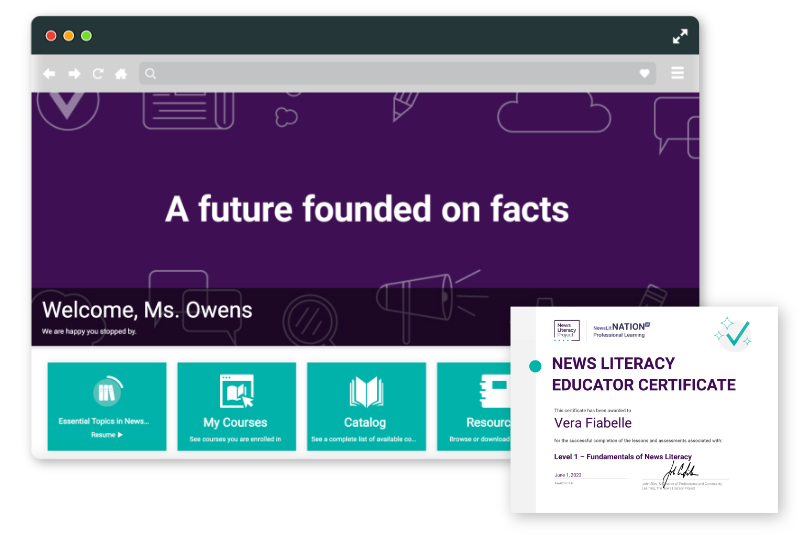News Literacy Project
Professional Learning
Learn to teach news literacy
Earn a News Literacy Educator Certificate and a digital badge
100% FREE
ON-DEMAND
SELF-PACED


Free, on-demand and self-paced
Discover an innovative platform for media and news literacy educators, where you can learn at your own pace about topics most relevant to your teaching objectives. NLP's Professional Learning offers FREE, on-demand lessons on quality journalism, the misinformation landscape, understanding bias and more. Participants have the option to earn NLP’s News Literacy Educator Certificate and a digital badge upon completion of the foundational material. When completed, this certificate reflects six hours of professional learning content.
Three foundational lessons
The curriculum, Essential Topics in News Literacy, includes three foundational news literacy courses:
Credibility in news and the standards of quality journalism.
Exploring the misinformation landscape.
Understanding and teaching news media bias.
Endorsed by educators
Don’t wait — enroll in free, on-demand Professional Learning today!

